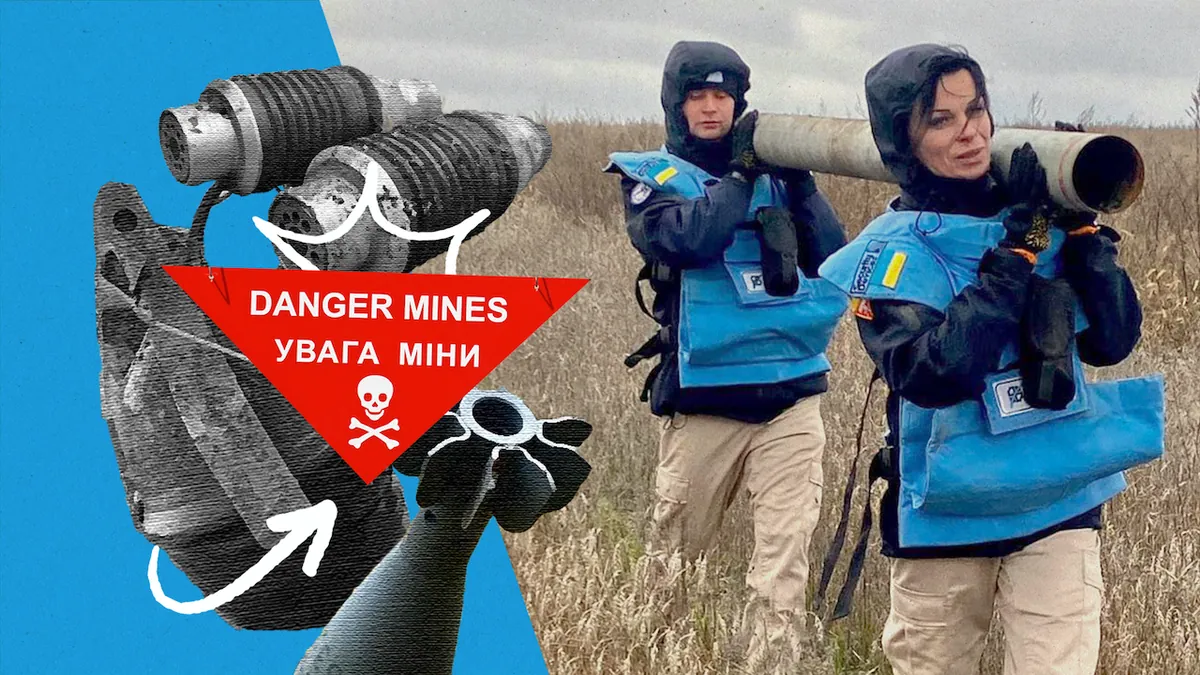In Ukraine, a nation grappling with the aftermath of conflict, women are stepping into crucial roles that are reshaping both the country's workforce and its path to recovery. At the forefront of this transformation are the all-female teams of dog handlers, training Belgian Malinois to detect explosives in what has become the world's most heavily mined country.
Kateryna Nahorna, a 22-year-old member of this specialized team, embodies the new face of Ukraine's demining efforts. "This job allows me to be a warrior for my country ... but without having to kill anyone," she explains. Her work is part of a larger initiative to survey and clear nearly 25% of Ukraine's territory, an area that has seen intense fighting and is now littered with unexploded ordnance.
The urgency of this task cannot be overstated. Ukraine, often referred to as the "breadbasket of Europe," relies heavily on its agricultural sector. The presence of landmines and unexploded devices has resulted in annual GDP losses estimated at $11 billion, according to the Tony Blair Institute for Global Change. This economic impact underscores the critical nature of the demining efforts.
The shift towards female participation in demining is part of a broader trend in Ukraine's workforce. Since 2017, when the government overturned Soviet-era laws banning women from 450 occupations, women have increasingly taken on roles traditionally held by men. This change has accelerated due to the ongoing conflict, with the number of women in the Ukrainian army rising from 30,000 before the war to 50,000 currently.
Viktoriia Avramchuk's story illustrates this transformation. Despite a lifelong fear of elevators and previous legal restrictions, she now works in coal mines for DTEK, Ukraine's largest private energy company. "I would never have taken the job if I could have afforded not to," Avramchuk admits, "But I also wanted to do something to help secure victory, and this was needed."
The demining sector, in particular, is actively recruiting women. Organizations like the Mines Advisory Group (MAG) see this as both a practical solution to maintain a stable workforce amidst male conscription and an opportunity for women's empowerment. Jon Cunliffe, Ukraine country director for MAG, emphasizes the long-term vision: "In five to 10 years, a lot of these women are going to end up being technical field managers, the jobs that are currently being done by old former British military guys."
This shift is not unique to Ukraine. Countries like Vietnam, Colombia, Cambodia, and Myanmar have seen significant increases in female participation in demining operations, with women comprising 30% to over 50% of the workforce in these sectors.
"I'm not brave enough to be on the front line, but I had to do something to help, and this seemed like a good alternative to make a difference."
The impact of these changes extends beyond the workplace, affecting family dynamics and long-term career trajectories. Manzevyta, who now works in demining, has handed over her previous online beauty retail business to her husband. "Life is completely different now," she reflects, noting the shift in household responsibilities.
As Ukraine continues its recovery and reconstruction efforts, the role of women in these critical sectors is likely to grow. The skills and experience gained in demining and other traditionally male-dominated fields may well reshape the country's workforce for generations to come, marking a significant step towards gender equality in post-war Ukraine.
